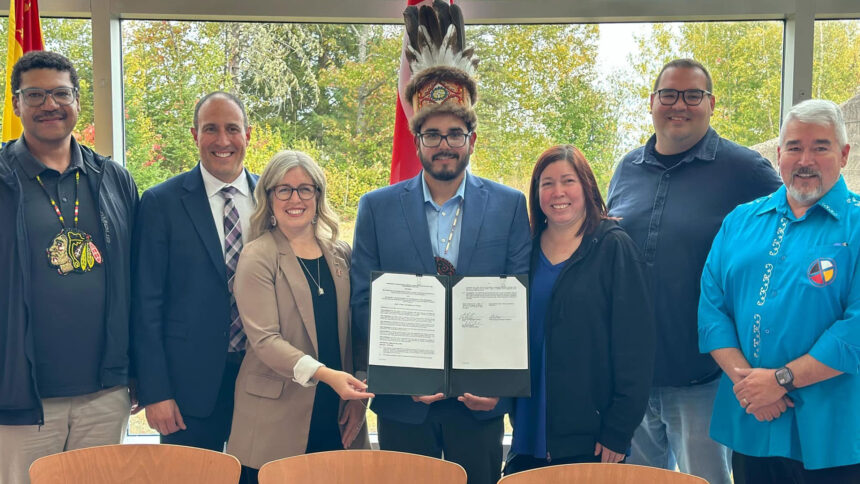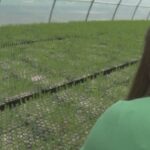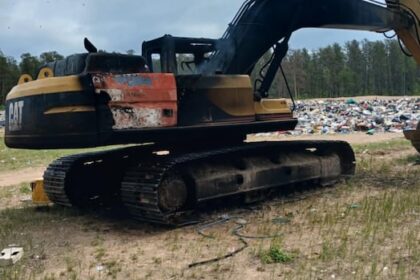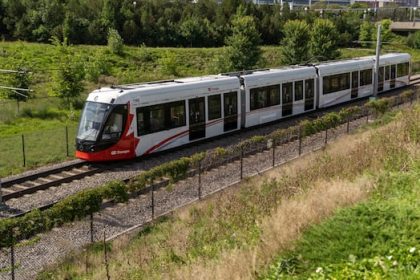In timing with the National Day for Truth and Reconciliation, eight Mi’kmaq and six Wolastoqey communities says they’re taking a step in building their economic relationship with the New Brunswick government by signing tax revenue-sharing agreements. The agreements address the active economic, social, and infrastructure gaps within First Nations and aim to improve the government-to-government relationship between the province and Indigenous communities. Chief Terry Richardson of Pabineau First Nation (Oinpegitjoig) said in an interview with APTN News that the agreement is a milestone and should lead by example for the rest of the country. “This is a model that should be taken right across Canada, it shows what can happen when you sit down government to government and actually come up with something that is palatable as well as really logical. It’s good for both” said Richardson. “This is economic reconciliation in action; that is what is great about it. The Premier and her ministers get it. They know that if First Nations prospers, the province prospers.” The eight Mi’kmaq communities that are included in the agreement are Amlamgog (Fort Folly), Esgenoopetitj (Burnt Church), Metepenagiag (Red Bank), Ugpi’ganjig (Eel River Bar), Oinpegitjoig (Pabineau), Natoaganeg (Eel Ground), L’nui Menikuk (Indian Island) and Tjipogtotjg (Buctouche) First Nations. The six Wolastoqey communities that signed the agreement are Sitansisk (Saint Mary’s), Neqotkuk (Tobique), Bilijk (Kingsclear), Matawaskiyak (Madawaska Maliseet), Welamukotuk (Oromocto) and Wotstak (Woodstock). The agreement was signed on Sept. 25. Indigenous communities with businesses that sell goods or services such as restaurants, hotels, pharmacies and gas stations will share provincial tax revenue. The provincial portion of the tax that is remitted to the province will be returned back to the communities listed in the agreement. The agreement ensures that on-reserve retailers selling goods such as gas or tobacco are expected to maintain prices that match the five closest competitive retailers to the community. The negotiation for the Mi’kmaq states that amounts below $10 million in a fiscal year, 95 per cent of that will be paid to the community. Amounts from $10 million to $18 million, 70 per cent will be paid. Amounts above $18 million, 50 per cent will be paid. For the Wolastoqey, tax revenue below $10 million, 95 per cent will be returned to the community. Above $10 million or higher, 70 per cent will be paid. Tax revenue above $16 million, 50 per cent each for communities will be returned. “These agreements benefit all parties and are a way to advance economic reconciliation, respect treaty and Indigenous rights, and strengthen communities across New Brunswick” said Keith Chiasson, New Brunswick’s Indigenous affairs minister. First Nation on-reserve retailers will be required to follow equivalent reporting regulations to any other retailer that operates within the province. Each month, a report submission will be mandatory to the Department of Finance and Treasury Board. The agreement is optimistic toward the economic collaborative relationship with the provincial government and Indigenous communities. The deal offers an opportunity for Indigenous communities that are impacted by the lack of vital funds required to invest in potential economic projects. Not only are communities hoping to utilize the funds to invest back into the community but some seek contributive partnership opportunity with the province by investing in green energy projects. Chief George Ginnish of Natoaganeg (Eel Ground) First Nation, one of the co-chairs of Mi’gmawe’l Tplu’taqnn Inc., (MTI) described in a press release how many communities within the province are unable to invest funds into both economic developments and their own underfunded social programs. “The revenue we will see from these agreements will allow each of our communities to determine how to create better opportunities for our members,” said Ginnish. Once revenue is returned to the community, it allows communities to address the concerns of their underfunded programs, including health and Elder services. Each of the 14 communities that signed the agreement can choose how to invest the money. “There is nothing worse than as a leader in a community than having to say ‘No,’” said Richardson. “This provides us some flexibility with issues now that we, as leaders, are encountering in our communities. “It is going to allow us to address those issues now. It is a huge weight off of our shoulders as leaders. We are excited.” Richardson said the revenue will allow his community to build up to three homes each year. Communities see the signing as a sign that the relationship between them and the province is changing for the better after the 2021 incident, where the province abandoned Indigenous enduring tax-share agreements. First Nations communities said that terminating the initial tax share agreement posed devastating consequences to the livelihood of critical Indigenous community services such as housing, education and social programs. Chief Patricia Bernard of Matawaskiyak (Madawaska Maliseet) First Nation commemorated First Nations communities in a media release for their resilience in combating the impacts of the lack of funding these last few years. “Since the first agreements signed between the province of New Brunswick and First Nations in the 1990s, revenue sharing has allowed us to have autonomous funding for essential services. We have felt the impact of the absence of this revenue over the past four years,” said Bernard. Current Premier Susan Holt said recognizing Indigenous sovereignty is important and emphasized her commitment to the partnership in the news releases. “We understand and recognize that building partnerships and fostering relationships with the Mi’kmaq is about creating equity and shared prosperity for all New Brunswickers,” said Holt. “We are proud to have collaborated with chiefs on these agreements, which benefit Wolastoqey communities and grow shared prosperity – our province flourishes when we work together.” The agreement is expected to be reviewed at least once every five years, following its first established date of April 1, 2025. Continue Reading
14 First Nations in New Brunswick say tax revenue sharing agreement step toward economic reconciliation

Leave a Comment










